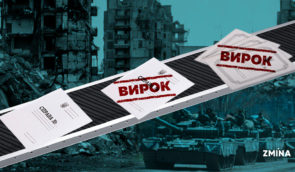Ukraine Denies Russian Activist Refugee Status
Russian activist Alexey Vetrov, who was denied refugee status in Ukraine, shares his experience of dealing with Ukrainian Migration Service.
According to Euromaidan SOS, Alexey Vetrov filed a lawsuit against the State Migration Service of Ukraine regarding their refusal to grant him refugee status or a status as a person requiring additional protection. The District Administrative Court of the Vinnytsia region declined Vetrov, upholding the decision of the Migration Service. Vetrov draws attention to the arguments that have guided the Migration Service in the defense of its decision.
“I showed my records of Russian police arrests and ‘administrative offenses’ as proof of my words about the violations of citizens’ rights in Russia, a country violating its own laws and international ones, about the arbitrariness of the police and the courts. But, in the eyes of a migration officer, I am a hooligan, as it’s written in the records: ‘disobeyed legal demands of police officers,’ ‘resisted arrest’, ‘committed arbitrariness.’ And those records are numerous, therefore I am a hooligan-recidivist who beats the police during arrest! Such is the conclusion made by the Migration Service of Ukraine,” writes Vetrov on his Facebook page.
He also notes that, as it turned out, migration officers regard records of participation in unauthorized protests as additional grounds for the refusal. According to their logic, if the protests are unauthorized, then participation in them is illegal, but everything that the Russian police do against those protesters is legal. In addition, according to Ukrainian bureaucrats, to be considered persecuted in Russia you have to be a member of the party officially banned in Russia. They also regard interest in the activists by the Centre for Combating Extremism, the FSB, or the Criminal Investigation Department as indicative of crimes or extremist activity.
According to Vetrov, the Migration Service is not friendly to Russian political immigrants: “Their job is not to investigate the circumstances of your case, not work together with you to find evidence of your persecution or danger in your country, not to help you in every way during the entire process, as required by the instructions and methods of UNHCR (all those are completely ignored). They will juggle their questions and your interview answers, pull them out of context to distort meaning, leave adjusted wording in the record, not include the entire text verbatim or the essence of multiple day interviews. Their task is to justify refusal, but even then only in court. First you will be denied without justification at all. That is my experience. I cannot say what it is – Ukraine government policy or prejudice of a particular functionary.”
Vetrov notes that, meanwhile, the Ukrainian people, almost exactly like Russians, exist separately from the state: the locals have given him all possible support, at least moral.
Vetrov moved to Ukraine in May 2014 from Nizhny Novgorod. He regularly took part in protests both in Nizhny Novgorod and Moscow. He believes that he was announced on the wanted list after participating in protests in Moscow in February of last year, which were bringing attention to the “Bolotnaya Square case” and shootings in Maidan.





